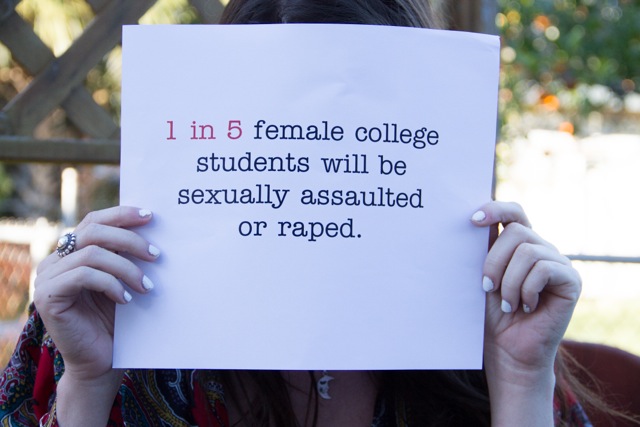By Mari Pothier | gargoyle@flagler.edu
Walking into the Alzheimer’s ward my eyes immediately began to fill with tears. I tried to contain the drops that dripped from my eyes because I didn’t want to make my grandfather sad. Blinded by the tears I was holding back I struggled to see as we walked down the hall. But then I saw my grandmother wandering aimlessly towards us. She looked at my mother, grandfather and me, but continued to walk past.
I lost control. She didn’t remember us anymore.
My grandmother was stolen from her family and from herself by Alzheimer’s disease, a brutal illness that affects not only the person suffering with it, but their family members as well.
Alzheimer’s is becoming more and more prevalent nationwide. An estimated 5.3 million Americans have the illness and of those, 5.1 million are over age 65, according to the Alzheimer’s Association. Alzheimer’s is also the seventh leading cause of death and every 70 seconds a person in America develops the disease.
Many people, though, do not fully understand what Alzheimer’s is. I know I didn’t fully understand it until I went to a support group meeting and had it explained to me by a registered nurse. Alzheimer’s is the most common form of dementia which, “refers to a decline in cognitive function that interferes with daily life and activities,” according to the Alzheimer’s Disease Education and Referral Center. Alzheimer’s, which begins in the part of the brain that affects recent memory, gradually spreads throughout the brain and is not a normal part of aging. The disease is fatal.
I saw this first hand with my grandmother and it makes me angry. Part of my anger is over why there isn’t more awareness. So much is being done for breast cancer and heart disease and I don’t understand why, since this disease is so prevalent now, more isn’t being done to educate people on Alzheimer’s. I am not saying that breast cancer and heart disease aren’t important; I just think Alzheimer’s deserves the same attention. For example news stations could do PSAs about this illness, similar to the ones they do about breast cancer and heart disease.
One of the best reasons for more awareness is to help family members who are the primary caregivers. It was found that 10.9 million family members and friends were caregivers for people with Alzheimer’s in 2009, according to the Alzheimer’s Association. Caring for a person with Alzheimer’s is extremely stressful and difficult. Often time caregivers feel all alone with this burden and that no one else understands.
When my family and I would bring my grandmother out to restaurants we never knew what was going to happen. Often times she would begin to cry not remembering what she ordered. Waiters would stare in confusion at her tears. They didn’t know why the food they placed before her made her so upset. As they made faces and rolled their eyes, my family and I couldn’t contain our embarrassment. They didn’t know the deeper issue.
With awareness people not affected by this disease will begin to understand it and maybe begin to help family members through this difficult time. They could volunteer at adult daycare centers and maybe just be a shoulder to lean on.
Alzheimer’s also has many misconceptions associated with it. People often think that the way a person develops Alzheimer’s is by sitting around doing nothing. This is completely not true and is very hard for family members to hear. One of my psychology teachers in high school made Alzheimer’s into a joke by calling it “old-timers disease” and saying he has to stay active because he doesn’t want to develop the illness. Honestly, this hurt because I knew my grandmother wasn’t a sedentary person. She was a talented seamstress and avid reader. Also many other intelligent people have developed this disease like former United States presidents, engineers, physicists, doctors, etc.
More awareness would mean more being done to combat it. Look at all that has been done for breast cancer and heart disease. If we could do that for Alzheimer’s it would be wonderful and revolutionary. People will then begin to realize how horrible this disease truly is and stop making it the butt of jokes. Caregivers would also begin to feel less alone and realize there are others out there that are going through the same situation they are going through.
Alzheimer’s isn’t a joke. If we can educate the people of our society, more can be done to stop its damaging affects.




Be the first to comment on "Alzheimer’s awareness vital for understanding and compassion"